The Benevolent Society celebrated International Women’s Day on Tuesday March 8th, and as an organisation that’s advocated for women for the past 200 years, we saw the day as another opportunity to galvanise change. With 80% of our staff and managers identifying as women we knew that to do so meant calling on our greatest resource: our people.
Our CEO, Lin Hatfield Dodds (top left), invited Benevolent Society staff to a virtual discussion featuring three employee panellists:
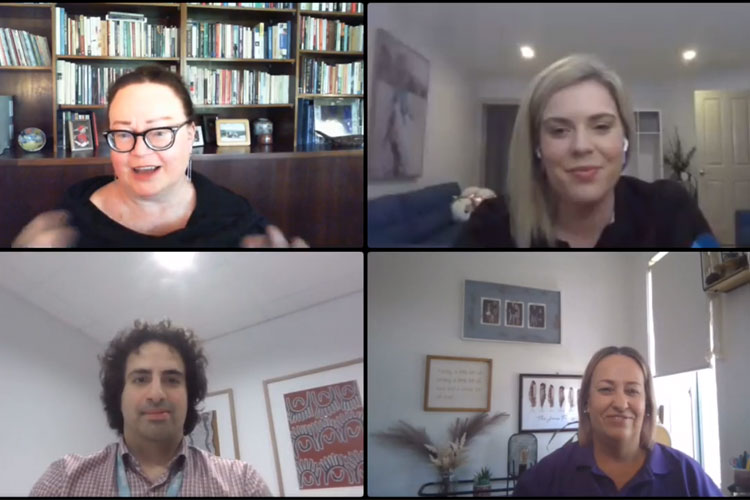
- Tarsha Jones, Identified Partnerships and Community Development Officer, QLD (bottom right)
- Missy Ford, Senior Practitioner, Community Development, Kempsey, regional NSW (top right)
- Siavash Manouchehrpour, Manager of the National Support Centre (bottom left)
Our agenda was to determine what more we can be doing to #BreakTheBias within the communities we serve and our own workplace. Employees of all genders, from each sector and level of the organisation were welcome to ask questions, reflect on current practises and offer suggestions in a live comment section.

The discussion opened with panellists explaining what makes International Women’s Day important to them. For Missy Ford, it’s a reminder to reflect on the biases she’s overcome to get to where she is today, and the ways women must modify their behaviour to avoid harm.
“There’s so many things we do without even realising. Whether it’s holding our phones while walking to the car, not standing too close to someone, or making sure our clothes aren’t too revealing,” she says. “I want something different for my daughters. I want them to feel safe, to be proud of who they are and not hold anything back.”
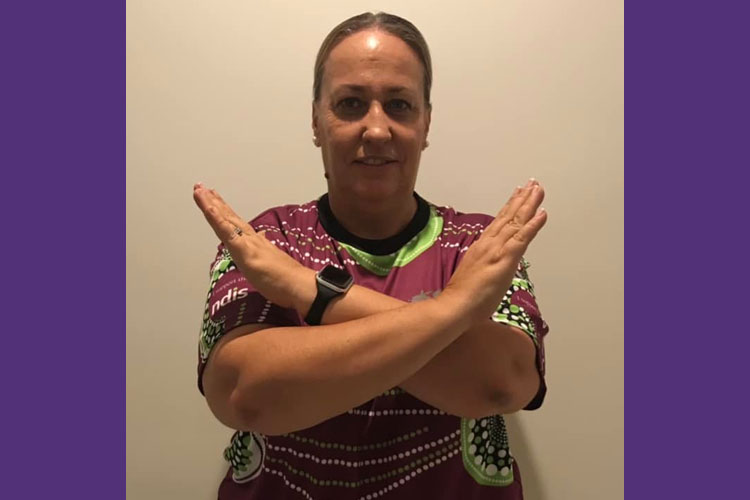
For First Nations Australian women such as Tarsha Jones, these biases carry a racial dimension.
“I have experienced cultural racism and workplace biases due to my identity. Through the lived experience that I’ve had, I could have gone down a completely different pathway, but I have four children and I really wanted to show my daughters in particular: You can be a strong woman. You can make changes. It’s important to build strong women to have a voice, to speak up and speak out,” says Tarsha.

As an ally, having cross cultural insight is important to Siavash Manouchehrpour, who immigrated to Australia from Iran.
"Reflecting on everything I’ve seen across cultures and borders and how different societal issues, biases and environments impact women, this cause is really dear to my heart. I’ve also worked with asylum seekers, it’s a human issue and a universal issue,” he says.
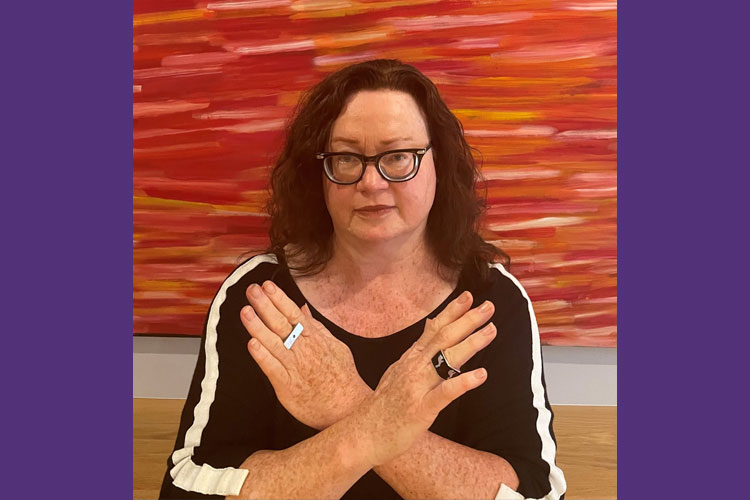
Having raised one boy and one gender diverse child as feminists, Lin Hatfield Dodds says feminism and International Women’s Day have developed into something people of all genders can celebrate.
“It comes down to diversity,” Lin says. “It’s really easy for me when I say ‘women’ to default to women like me: Anglo middle class, lower middle class and middle aged. But if we’re celebrating all women and girls we’re celebrating diversity. Strength is in us individually and collectively, it develops our empathy, unlocks our imagination and unlocks our collective potential.”
Strides towards change
So, how can we keep the needle moving in the right direction?
Tarsha says having different cultural practises embedded in her program mean culturally aligned strategies can be delivered.
“Partnerships are key to making sure that we're delivering a culturally safe practice to everyone. Our staff also need to know their own values, beliefs and how they affect their work with culturally diverse people,” says Tarsha.
Siavash agrees that cultural factors underlie many challenges a person may be facing so being attuned to these nuances is crucial.
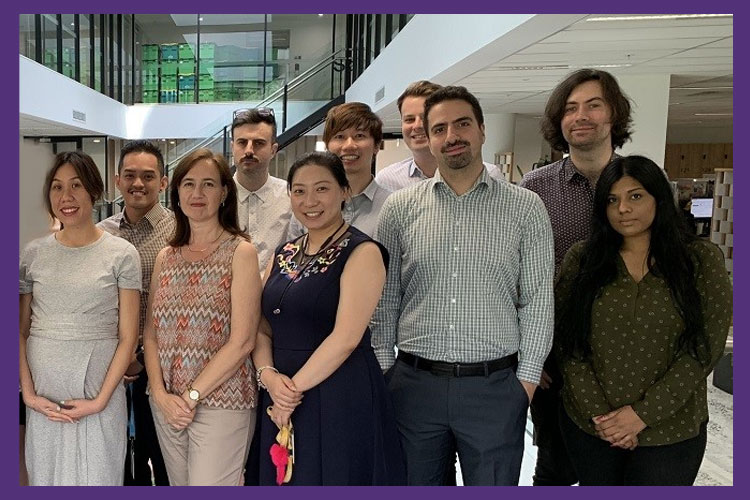
“It goes hand in hand with delivering services that are person-centred, promote the right to self-determination and offer of choice and control. From a Support Centre perspective, I must keep that front of mind, making sure I’m actively listening to our people, our callers. It all starts from there, doesn’t it? By listening. That’s the key thing to do,” he says.
Missy once recalls that when her team ran a playgroup program in a First Nations mission, the children’s parents weren’t comfortable having their information on a DSS Data Exchange. Beyond listening to their concerns, flexibility towards changing practise was vital.
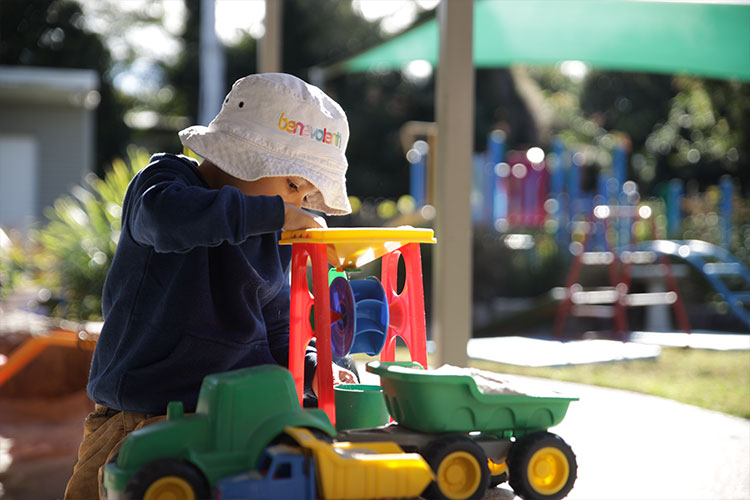
“The women felt that the evidence that was being gathered was about them and not for them. To address this, we were able to set up alternative measures for the team to ensure accountability for the funding without breaching the trust of our participants. Our manager listened and supported us whilst communicating to DSS about the participants concerns. Our clients need to be able to choose what’s best for them, and this was a prime example of The Benevolent Society supporting that” Missy explains.
In listening to diverse communities, we’re likely to encounter uncomfortable conversations, but Tarsha believes discomfort is necessary.
“We need to get comfortable with being uncomfortable. We need to know how to have those difficult conversations, and we need to know our own biases, values and beliefs to call it out,” she says.
Everyone has a say
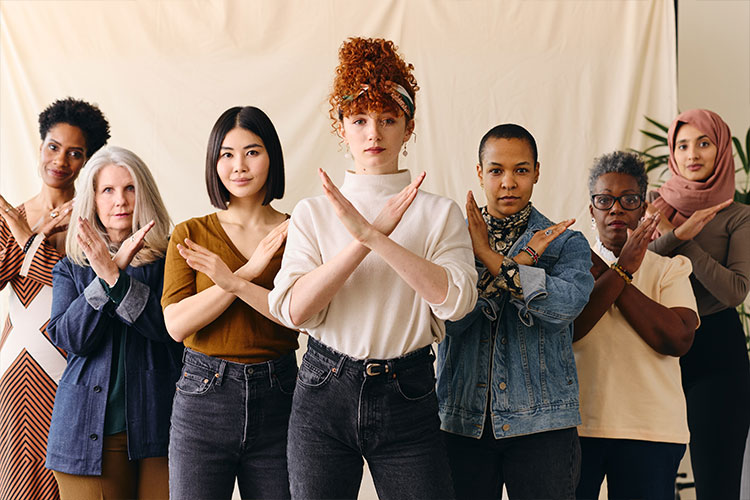
“A really strong part of our organisation’s strategy going forward is to enhance the integration of our services and bring them together,” said Lin as she read through the live comment section which buzzed with ideas and questions from colleagues all over Australia.
“The more we can do that, the better positioned we will be to come up with more robust, imaginative, creative and responsive ways to engage with people,” she says. “There's a lovely comment from Phoebe, just saying they're really glad that gender diversity was brought up, because the queer community is often marginalised and pushed to the edges.”
We look forward to driving more meaningful conversations on all issues surrounding equality, diversity and inclusivity and effecting change across our workplace, communities, in the lives of our clients and in our interactions with the world at large.
Thank you to our CEO Lin, panellists Tarsha, Missy and Siavash for sharing your journeys, and to our staff for listening in and spurring such an invigorating discussion.